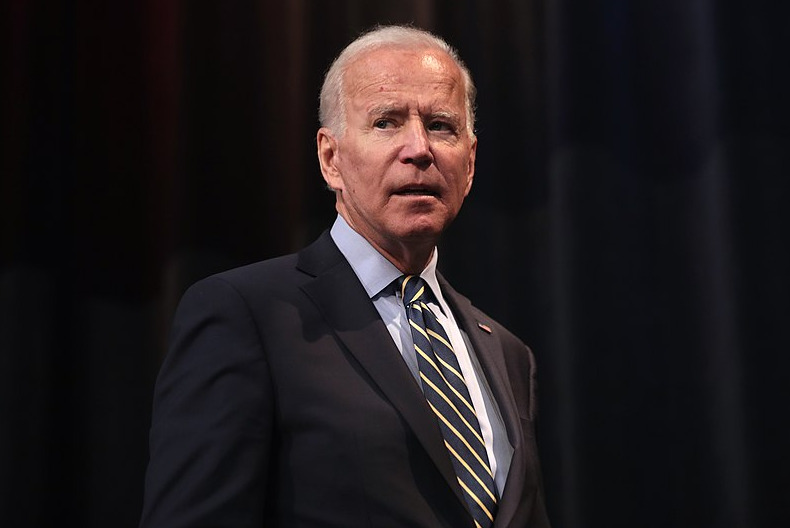Once celebrated for its economic and military dominance, the West stood tall until the pre-Covid era of 2020. It was a powerhouse, revered globally for its economic prowess and military might, defining an era of unparalleled influence and control.
However, the quiet entry of Covid-19 disrupted this narrative, triggering a catastrophic setback that reverberated across the globe. The stringent Covid protocols, particularly the imposition of widespread lockdowns, unleashed a torrent of economic distress. Big economies faltered, their robust engines of growth grinding to a sudden, staggering halt.
As 2021 dawned, a tentative sense of recovery tentatively emerged. Hope flickered as economies, bruised and battered, began to regain their footing. It was a glimmer amid the bleakness—a fragile sign that the worst might be behind.
Join us on Telegram: https://t.me/tfiglobal
Yet, just as the world dared to hope for stability, an unforeseen shockwave rocked the very foundations of both economy and military might. The eruption of the Russia-Ukraine War in response to Ukraine’s murky maneuvers. It was an unexpected twist that thrust the world into a fresh wave of uncertainty and chaos, challenging the fragile economic resurgence and casting a foreboding shadow over once-sturdy military alliances.
Read More: Confiscating Russian Properties turns into a nightmare for Biden
As the Russia-Ukraine conflict brewed, the Western world hastily picked sides, rallying staunchly behind Ukraine. Pouring in military support, armaments, and financial aid, they escalated the feud into a colossal Russia versus the entire West showdown.
Yet, amidst this geopolitical storm, a cadre of astute nations chose a different path—neutrality. From India and China to select European and Latin American countries, they prioritized their national interests, steering clear of the conflict’s fray.
Remarkably, their neutrality bore unforeseen fruits. While nations aiding Ukraine—Germany, France, the US, and others—plummeted into economic turmoil, these neutrals thrived. Signs of growth sprouted in their economies, a stark contrast to the recession gripping the aid-centric nations.
The irony is palpable—a situation exacerbated by Biden’s insistence on compelling nations to blindly follow suit in supporting Ukraine and imposing punitive sanctions on Russia.
Soon, there came a big shift in the global economic order. The West is now rapidly degrading, while the economies of Russia and the Global South are growing.
According to President Vladimir Putin’s top economic adviser, Maksim Oreshkin, the US insistence on sanctioning Russia has caused a downturn in the EU economy.
Speaking to Expert magazine in a Tuesday interview, Oreshkin highlighted the consequences of sanctions imposed since February last year, underscoring the EU’s loss of energy security and a vital export market.
Oreshkin referenced the fundamental elements driving the EU’s economic success, as outlined by the bloc’s foreign policy chief, Josep Borrell. These encompassed the convenient access to energy resources from Russia, leveraging cost-effective production in China, and entry into both the Russian and Chinese markets.
“The gradual loss of these factors is leading the EU economy towards long-term stagnation,” Oreshkin argued, “because European manufacturers now have neither the export market nor the advantages in technology that they had five to ten years ago.”
Oreshkin criticized the US for “devouring its European allies, crippling European sectors like chemicals and automotive industries.” This criticism coincides with a more extensive decline of the Western economic model, he added.
“The economies of the Global North – the US, Japan, the EU – are slowly losing their status, their significance. This gradual decay of the countries of the Global North and the growth of countries in the East and South is what will further shape the landscape of the global economy,” he predicted. Oreshkin noted that China has already become the leading global economic power, while Russia is now the largest economy in Europe, “on course to replace Japan as the world’s fourth largest.”
Read More: As Europe gently starts removing sanctions on Russia, Putin goes all guns blazing against it
As per the presidential aide, major global economic forces will orient their development strategies toward burgeoning markets in Asia and Africa in the forthcoming years. He anticipated Russia’s development would align accordingly, particularly within the energy sector.
This tale of two worlds paints a stark picture—a Europe coerced into a devastating plunge by following the US’s lead, while Russia and its allies stand tall, weathering the storm with calculated resilience.
The relentless push by Biden’s administration to impose sanctions on Russia has been a harrowing tale for Europe. As the EU grapples with the aftermath, the consequences of blind compliance are vivid—a loss of vital energy resources, a crippled export market, and a decay in technological advantages that once defined European manufacturers’ prowess.
This tale of triumphs and tribulations paints a vivid picture—a Europe caught in a downward spiral due to its alliance, and a resilient Russia charting a new course amidst a redefined global economic order.
Recommended Video:
